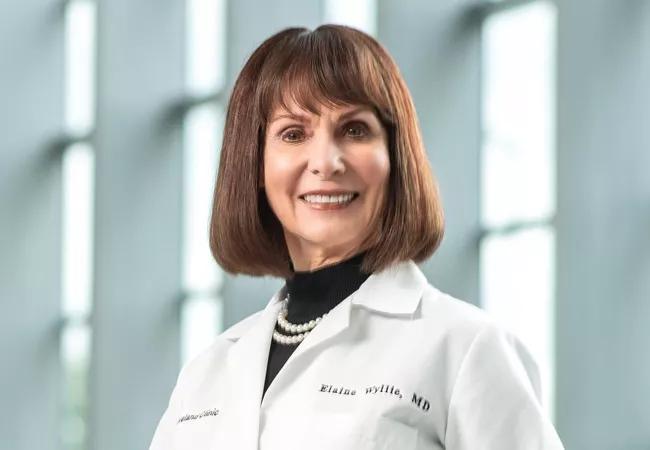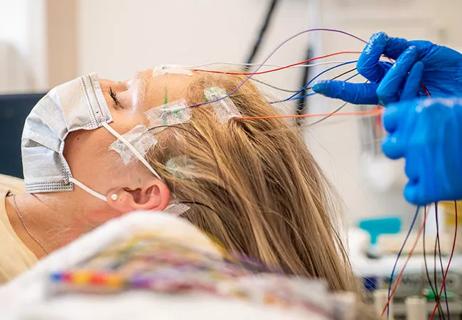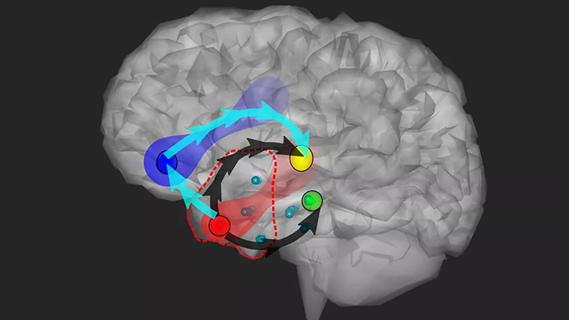Pre-retirement reflections from a pioneering clinician, researcher and educator

When Cleveland Clinic epilepsy specialist Elaine Wyllie, MD, retires from medical practice at the end of 2023, her many legacies and other professional activities will carry on. Since joining the Cleveland Clinic professional staff in 1985, Dr. Wyllie has left her mark on the epilepsy subspecialty of neurology in an abundance of ways.
Advertisement
Cleveland Clinic is a non-profit academic medical center. Advertising on our site helps support our mission. We do not endorse non-Cleveland Clinic products or services. Policy
She organized the first Cleveland Clinic International Epilepsy Symposium on pediatric epilepsy and collaborated with colleagues to establish a distinct program for delivery of epilepsy care to pediatric patients in the Cleveland Clinic Epilepsy Center. She also worked on the national and international levels to focus attention on pediatric epilepsy education and research.
Dr. Wyllie’s research has focused on surgical intervention for children with uncontrolled seizures to improve quality of life and maximize developmental potential. This work has helped make life-changing surgical treatment an option for countless young patients with debilitating seizures worldwide.
Dr. Wyllie served for many years as Professor of Neurology at the Cleveland Clinic Lerner College of Medicine. She has lectured extensively, published hundreds of scientific reports and served as editor of seven editions of the definitive textbook, Wyllie’s Treatment of Epilepsy. She has mentored over a hundred epilepsy fellows, many of whom are now leaders of their own programs.
Accomplishments like these have earned Dr. Wyllie numerous awards, including the Epilepsy Research Award from the American Epilepsy Society, the Herbert H. Jasper Award from the American Clinical Neurophysiology Society, the Kiffin J. Penry Award for Excellence in Epilepsy Care from the American Epilepsy Society, and the Cleveland Clinic Award for Master Clinician.
Consult QD asked Dr. Wyllie to reflect on notable developments and lessons learned from her remarkable career. An edited transcript follows.
Advertisement
How has the field of epilepsy changed over the course of your career?
Dr. Wyllie: When I started training in epilepsy, it was a relatively new subspecialty of neurology. Since then, epilepsy care has advanced tremendously. Major improvements have included the addition of many antiseizure medications with favorable efficacy and tolerability, the development of epilepsy surgery as a safe and effective treatment for drug-resistant seizures, and an explosion in our understanding of the genetic bases for many epileptic conditions. These discoveries and innovations are benefiting people with epilepsy across all age ranges.
What have been the most notable advances in pediatric epilepsy?
Dr. Wyllie: It has become clear that for infants and children especially, early treatment of epilepsy is critical to obtaining the best neurodevelopmental outcome. We now know that for children as well as adults, epilepsy surgery can sometimes be the path to a better life and should be considered sooner rather than later, not as a last resort.
Which of your contributions to the field are you proudest of?
Dr. Wyllie: Together with the team at Cleveland Clinic, our work helped broaden the selection criteria for surgery to include children with nonlocalized EEG patterns when an early developmental brain abnormality is present, as well as children with MRI abnormalities in both brain hemispheres when seizures arise from just one side. These concepts have been adopted at epilepsy centers worldwide.
I am also grateful to have served as the editor for seven editions — now going on eight — of Wyllie’s Treatment of Epilepsy. It’s gratifying that our book has been the standard text in the field since 1993.
Advertisement
What advice would you give to your younger self when she was starting out as a new physician in this field?
Dr. Wyllie: I would encourage my younger self to embrace opportunities, watch people to learn, lead by example, engage every day and learn from her failures. Most importantly, I would remind her to always put patients first.
Beyond that, I would urge all early-career physicians to try out a range of different opportunities. Serving as the quality officer, performing research projects or becoming involved in teaching are all potential avenues for self-discovery. These efforts can enhance the core responsibility of becoming a master clinician.
What’s one positive insight from your career you’d like to share with other physicians?
Dr. Wyllie: Never underestimate how much learning new things outside your professional life might benefit your clinical practice as well. That was my experience in learning ballroom dancing with my husband after our sons were grown.
As I learned to dance, I realized that dancing and choreography are applicable to everything we do. Dancing changed my way of speaking with families and helped me to be more effective when discussing life-changing issues such as a new epilepsy diagnosis. Dancing taught me that growth in our personal lives often makes us better physicians as well.
What are your hopes for what your epilepsy colleagues might achieve in the years ahead?
Dr. Wyllie: The future of epilepsy medicine is bright with possibilities. Frontiers include improved surgical planning with stereotactic EEG, advances in neuroimaging to reveal the subtlest surgically treatable abnormalities, and development of precision medicine based on detailed genetic diagnoses. I expect great things from the young doctors of today!
Advertisement
Advertisement

Novel Cleveland Clinic project is fueled by a $1 million NIH grant

Patients with epilepsy should be screened for sleep issues

Sustained remission of seizures and neurocognitive dysfunction subsequently maintained with cannabidiol monotherapy

Model relies on analysis of peri-ictal scalp EEG data, promising wide applicability

Investigational gene approaches offer hope for a therapeutically challenging condition

Study combines intracranial electrophysiology and SPECT to elucidate the role of hypoperfusion

Characterizing genetic architecture of clinical subtypes may accelerate targeted therapy

Data-driven methods may improve seizure localization and refine surgical decision-making